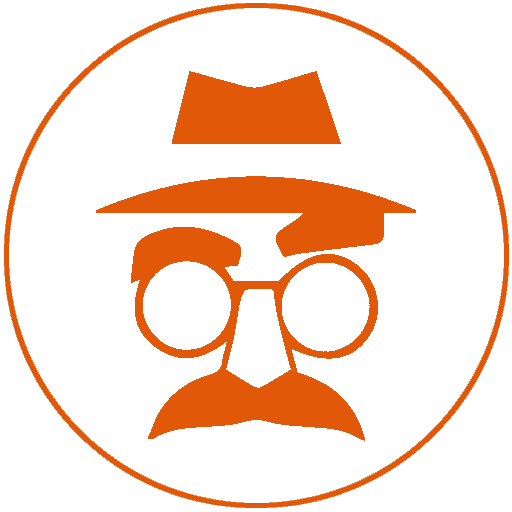This is a text automatically translated from Italian. If you appreciate our work and if you like reading it in your language, consider a donation to allow us to continue doing it and improving it.
The articles of Cassandra Crossing I'm under license CC BY-SA 4.0 | Cassandra Crossing is a column created by Marco Calamari with the "nom de plume" of Cassandra, born in 2005.
After the new word in Cassandra's dictionary, Archivists, here is also the first article!
This article was written on November 20, 2023 from Cassandra
Cassandra Crossing 559/ Archivalism: the beginning
Will librarians be the heroes of the future? As the pollution of the Infosphere proceeds at great pace, the preservation of culture and the true soul of Man is increasingly important. We have to do it ourselves!
Cassandra, the 24 indomitable readers now know well, has always had the preservation of culture at heart, and consequently also of her prophecies.
For this she committed herself, both as a prophetess, with numerous statements on the subject, both on a personal level, practicing an extensive use of data storage on its memory media, and a selective use of archiving systems, such as the never thanked enough archive.org. Even creating a neologism for this purpose, “Archivists”.
And this is why Cassandra has decided to abandon current events for a while, even though they are full of topics that should be treated, in favor of other very important topics, but which often, lacking urgency, end up always being neglected.
This is precisely the case of archiving content online, to which Cassandra has already dedicated numerous statements and even a specific list.
But in these interventions, the details, the examples and the TODO they have strangely always been missing. It's time to fix it!
Let's therefore start with a resource that is easy to use, effective, free and within everyone's reach; without any surprise we talk about archive.org, the digital library that includes the much better known Wayback Machine, otherwise called “The Internet Time Machine”.
As some have already proven, the Wayback Machine (WM for short) allows, with a very simple operation, to permanently save a certain page of a site; just enter the address of the page to save to “Save Page” field.

If the page has already been saved in the past, your request will save a further copy with the current content.
The archiving of multiple copies over time, in fact, creates a "history" of the page, very useful for those sites subject to frequent changes; these snapshots are often used as forensic evidence in judicial proceedings, and also allow us to discover "manipulation" of contested pages, for example when some "little hand" "corrects" a journalistic article hoping that no one will notice, or when someone does their own " disappear” a page that has become uncomfortable.
For sites that have been archived entirely, it is usually the WM itself to periodically send one of its robots to re-archive the pages, without having to request it again.
To check if a page has already been saved, simply search for it using the main search field located next to WM logo; this will also allow you to access the list of copies (snapshots) of the page that have been made over time.
If the page you are looking for is not present in the WM, it will be searched for you on the web, and if present you will be offered to archive it directly.
This simple procedure can be facilitated by a specific extension, available for the main ones Browsers; you can find it, always on the same page, in the menu Tools to the left.
The extension is very convenient and speeds up repetitive operations a lot. You can also make it so that if a page is not found, instead of seeing the classic 404 — page not found, The Browsers it automatically searches for it in the WM and, if it finds it, you directly view the most recent archived version.
This initial "pill" of Archivismi is coming to an end. But before we say goodbye, two things and a spoiler
First thing. WM and all of Archive.org run on a complex information structure that is not optimized for speed but for other factors that we will see, unlike the sites normal. So be prepared to wait not fractions of a second but a few seconds. The page you are looking for, which perhaps no one has ever requested before you, must be located and retrieved in the depths of the Archive.org digital library. It's not easy to juggle 212 Petabytes of online data.
Second thing. archive.org is a non-profit organisation, which lives on voluntary contributions. Anyone who uses it regularly, or finds it useful, or morally agrees with it, should consider it a duty a donation. TANSTAAFL… Cassandra has already told you so many times…
Spoilers. The path to becoming a digital librarian begins here; you will notice that, still on the main WM page, at the top right there is the link "Sign Up”. It is used to register as a user. And start moving gracefully, without haste and without starting to file at random.
But this… this is another episode!
Marco Calamari

Video column “A chat with Cassandra”
Cassandra's Slog (Static Blog).
Cassandra's archive: school, training and thought
Join communities
If you have found errors in the article you can report them by clicking here, Thank you!
Comments
Each article corresponds to a post on Feddit where you can comment! ✍️ Click here to comment on this article ✍️
Feddit is the Italian alternative to Reddit managed by us, based on the software Lemmy, one of the most interesting projects of fediverse.







